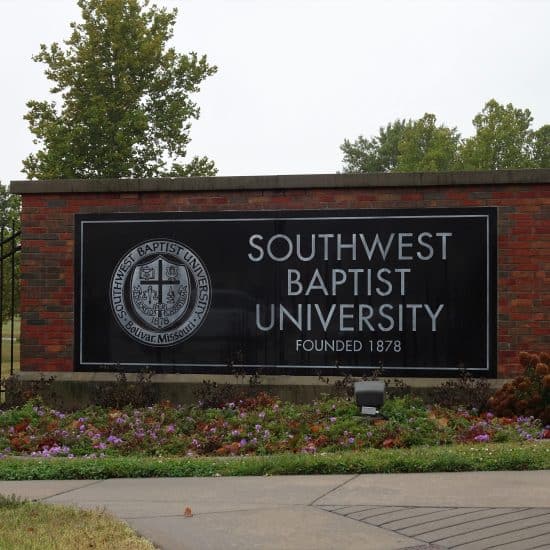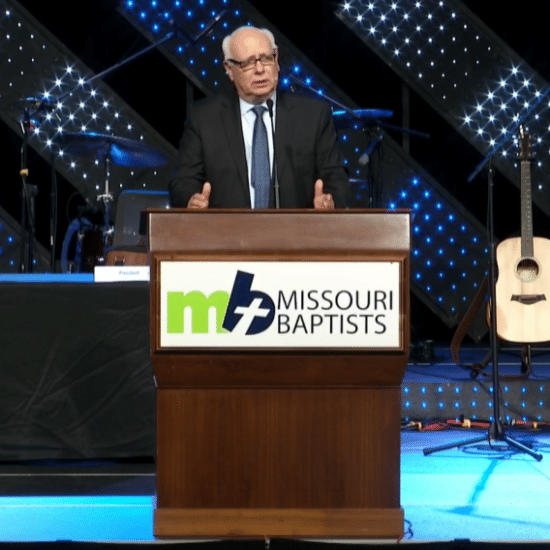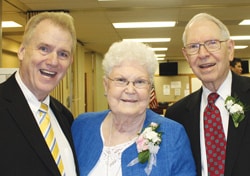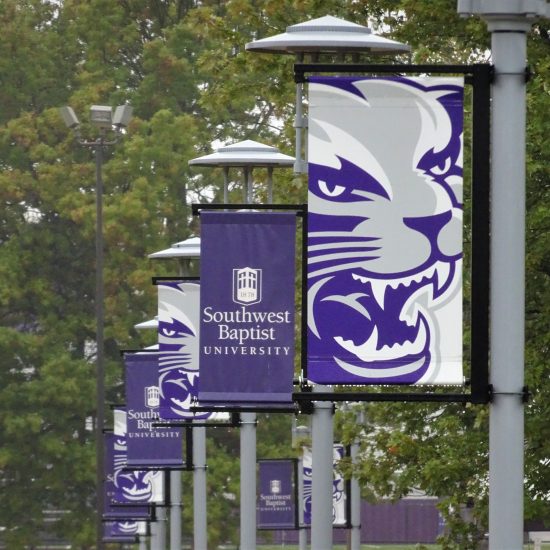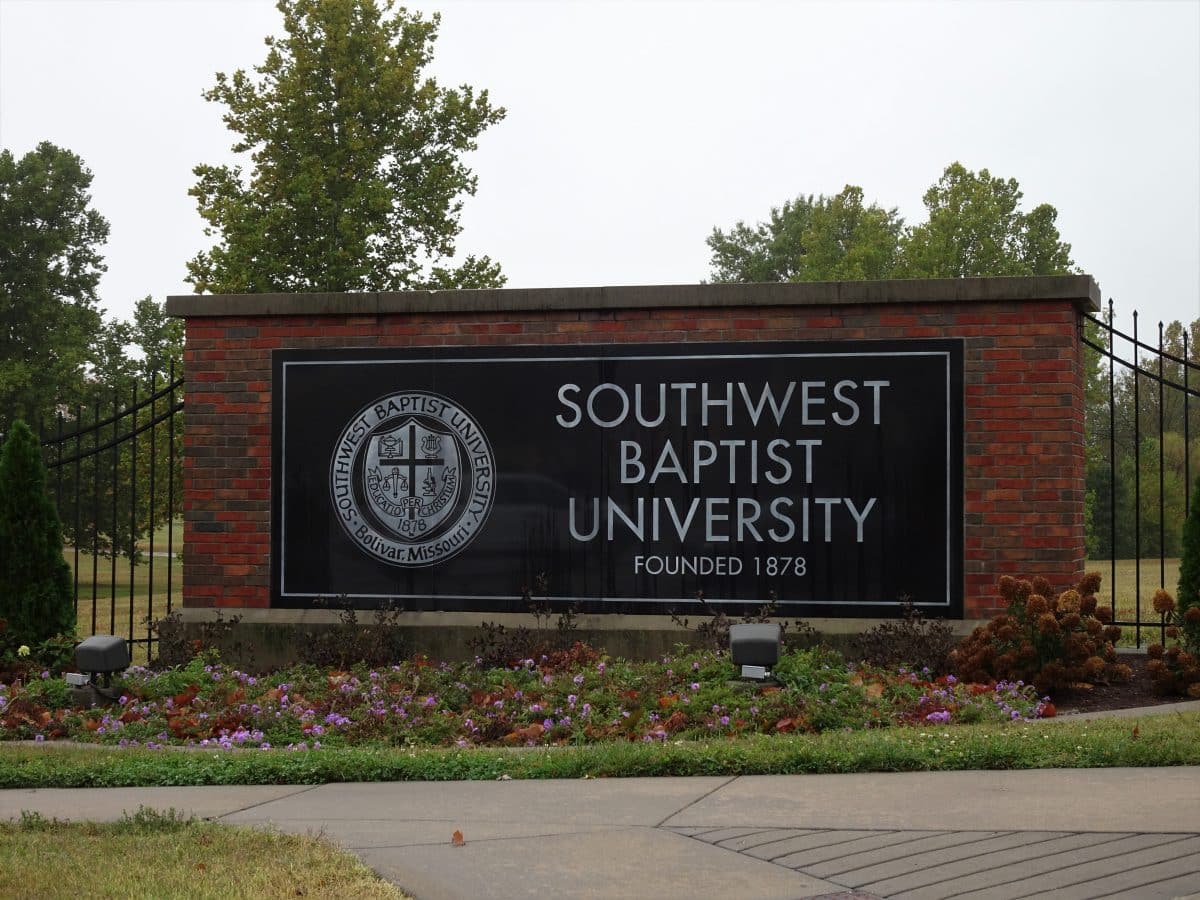
The accrediting body for Southwest Baptist University in Bolivar, Missouri, placed the school’s accreditation status on probation on Thursday (Nov. 4). The move comes after an investigation into actions by SBU and the Missouri Baptist Convention during a three-year conflict at the school over power and theology.
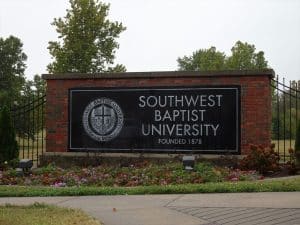
The Higher Learning Commission updated its page about SBU to list the school’s status as “Accredited (Probation).” This added to the school an “upcoming or in-progress review” for the 2022-2023 year in response to the probation decision. In its public disclosure notice, the HLC explained it “determined that the institution does not meet HLC’s Criteria for Accreditation related to integrity: ethical and responsible conduct and institutional effectiveness, resources and planning.”
The HLC, headquartered in Chicago, Illinois, accredits post-secondary educational institutions in 19 mostly midwestern states. It provides SBU’s only overall accreditation, though some individual programs have additional accreditation.
According to the HLC, a school “may be placed on Probation when it no longer meets one or more of the Criteria for Accreditation, Assumed Practices, or Federal Compliance Requirements.” During this probation period, the school must “undergo a comprehensive evaluation, which requires an Assurance Filing, Federal Compliance Filing, and on-site visit, to provide evidence that the areas of concern have been ameliorated.” If concerns aren’t resolved, the HLC can extend the probation period or even withdraw accreditation. In the case of SBU, that decision about the new probation status is set to be decided by the HLC in November 2023.
The inquiry that led to the probation status started in August 2020 as SBU alum Russell Jackson filed a complaint to raise concerns about the new governing documents that MBC leaders demanded SBU adopt. The new documents would create creedal requirements for professors and administrators, name the MBC as sole corporate member, and declare SBU trustees have a fiduciary responsibility to the MBC. After SBU responded to the complaint, the HLC in December decided to conduct a focused visit to further investigate the issues, a move that automatically changed SBU’s accreditation path.
During the accrediting inquiry, SBU submitted its proposed new governing articles with the Circuit Court of Polk County in February. But a Baptist layman in Bolivar filed a petition to intervene, as did a current SBU professor and a current SBU student. A judge granted intervenor status to all three on July 1. Jackson served as the attorney for the first individual to successfully file to intervene as an effort to block the new governing documents. The HLC complaint and intervenor filings cited Word&Way reports.
As the judge considered the arguments from the various parties, the HLC in May held a focused visit to further investigate the issues in Jackson’s complaint. After receiving a preliminary report from the HLC, SBU’s trustees voted on Aug. 25 to drop its proposed articles. The trustee action and statement suggested the proposed articles that the MBC demanded would have threatened the school’s accreditation — which is what Jackson’s complaint and the three intervenors’ filings warned. The trustees on Aug. 25 also took two other actions after reviewing the HLC’s preliminary report: they accepted the resignation of the board’s vice chair and voted to reorganize its Employee Policies and Personnel Committee.
HLC Rationale for Probation
Despite the recent steps by SBU, the HLC’s focused visit still resulted in the probation decision. The HLC detailed its concerns about SBU in a Nov. 8 letter to SBU President Rick Melson. It includes a variety of concerns ranging from the governing documents, proper roles of board members, the denial of faculty tenure and promotion, new statements of faith, and institutional turmoil.
“The initiation of changes to governing documents at the request of the Missouri Baptist Convention (MBC) without prior HLC approval, which would have recharacterized the institution as an entity of MBC with the latter as its sole member and which were only recently rescinded by the Institution’s governing board before becoming legally binding, raises significant questions about the independence and autonomy of the Institution’s governing board to make decisions in the best interests of the Institution,” the HLC wrote. “More time is needed to ensure that the SBU board is free to exercise such powers without undue influence from MBC and that a pattern of such independence is evident in the SBU board’s actions.”
The HLC noted some new changes implemented by SBU’s board, but added more time is needed to see if these solve significant concerns. These include waiting to see if the school can “demonstrate the SBU board’s understanding of its fiduciary responsibilities and to build a record demonstrating behaviors and practices that guard against the board overstepping its role, so as not to erode the integrity of delegating day-to-day management of SBU to the Institution’s administration.”
“More time will be needed to ensure a pattern of board behaviors that reinforce that the board is aware of its role as differentiated from the role of administration,” the HLC added.
Treatment of faculty members who were denied tenure or promotion in the spring also sparked criticism from the HLC, who noted that some board members “recharacterized a historically celebratory event related to the promotion and tenure process in ways that were not supported by the Institution’s policies, leading to concerns about unannounced changes being made to the expectations for promotion and tenure.” The HLC called the actions that led to the tenure and promotion denials “apparent unannounced changes in violation of previously published institutional policy.” Although SBU’s board recently reorganized the committee involved in that process, the HLC said “more time is needed to demonstrate a pattern of board participation in promotion and tenure activities that comport with the updated policy.”
The HLC also noted “confusion regarding three different ‘statements of faith,’ additional misunderstandings regarding what curricular content is permitted to be covered in the classroom contributed to a vote of no confidence by a substantial portion of the faculty.” The continuing confusion over the statements, the HLC added, “has destabilized and eroded the sense of academic freedom and freedom of expression at the Institution.”
“The Institution recently named a new president; given the extensive turmoil involving the board, faculty, alumni, and other constituents, time will be needed for SBU’s new leader to help the Institution’s community heal and to operationalize the changes intended to ameliorate concerns related to the board’s ability to carry out its duties effectively and the Institution’s ability to implement shared governance,” the HLC added.
Throughout the inquiry by the HLC, SBU and MBC leaders dismissed the concerns that led to the complaint. In a letter to SBU faculty in October 2020, MBC Executive Director John Yeats attacked Word&Way’s editor for reporting on the issue. Yeats dismissed as “rumors” the concerns that “wholesale changes are coming to SBU, including the removal of tenured professors and the loss of accreditation for the university. Let us assure you that nothing could be further from the truth.” Yeats added that the MBC would “work with SBU’s board and staff to defend against misguided accusations related to accreditation and the Higher Learning Commission; we believe this inquiry will be closed as unfounded.”
Similarly, SBU Board of Trustees Chair Eddie Bumpers in March dismissed concerns as just “false accusations.” He added, “We believe that the HLC will agree that the actions of the SBU board over the last few years have only strengthened her identity and have not violated any policies.”
After news of the HLC’s decision, SBU responded to a Word&Way request for comment.
“This action is based on governance issues and is not a reflection on the quality of SBU’s academic programs, faculty, or staff,” Melson said in the statement. “We will continue working closely with the HLC during this period to make certain that we meet the Core Components for accreditation.”
This article has been updated to include comments from SBU and details from the Higher Learning Commission documents released after initial publication. Additional comments from Melson are included in a report at A Public Witness.


